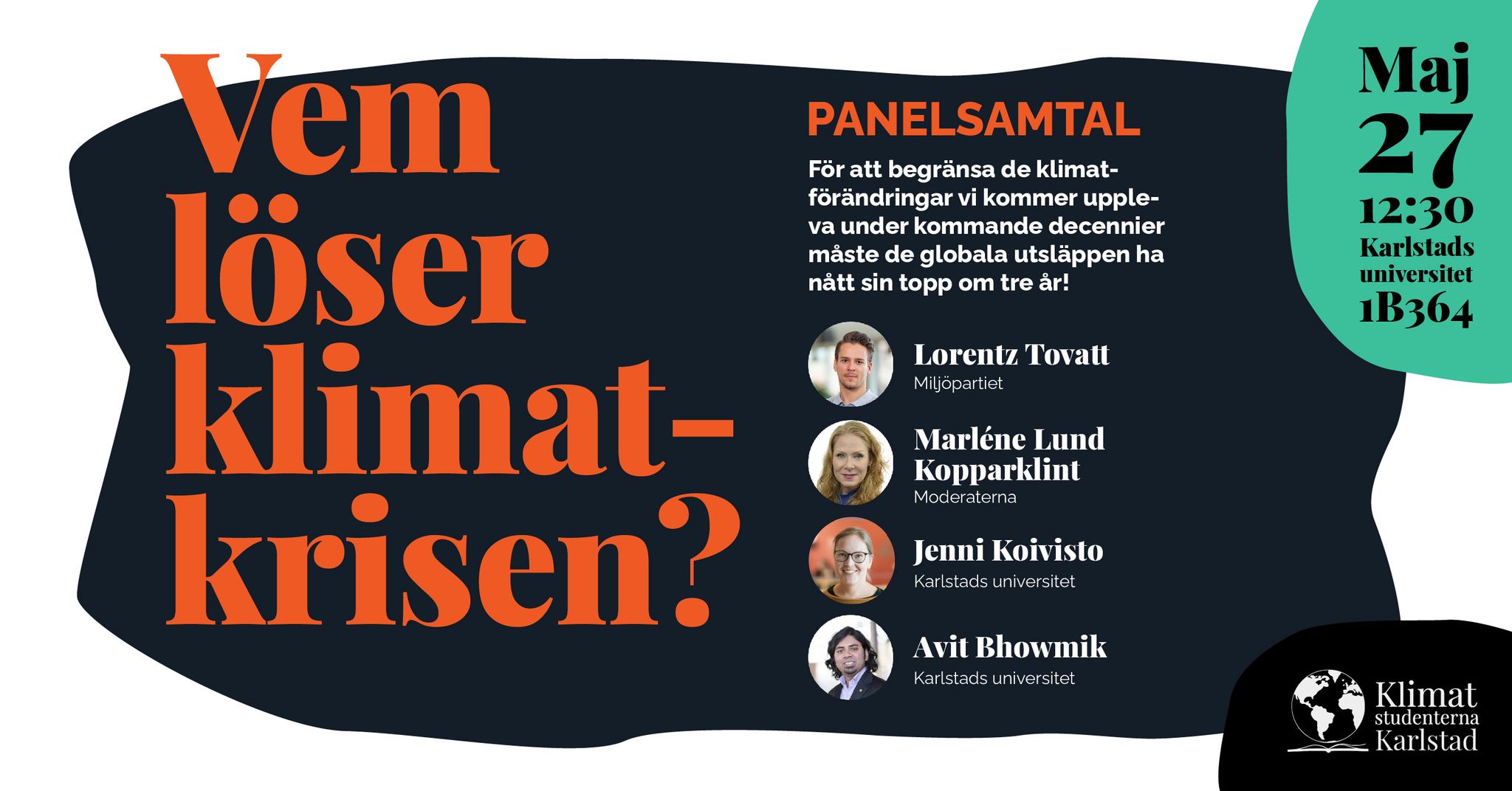Who will solve the Climate Crisis?
The Climate Students network at Karlstad University organized a panel discussion on 27 May 2022 between researchers and politicians on the topic “Who will solve the climate crisis”? I was one of the panelists and enjoyed a vibrant discussion involving the following:
We have named today’s panel discussion “Who solves the climate crisis?”, It would have been great if we could call one of our panelists to that task when we are done here today, but I think we will be content to ask you that question instead. Who is really responsible for solving the climate crisis?
When we say “listen to the research” or, as in the case of the Climate Students, “live as you learn”, which in practice means the same thing, that the universities should listen to their own research, we mean that the alarms about global warming should be taken seriously and acted upon. But how does politics work when new research is published, for example when the IPCC releases a new report with alarming figures regarding the climate crisis? How do you feel that climate research is received in politics and how well is it acted on?
How can we work forward to reduce the gap between research and politics?
We have talked about the latest IPCC report and the need to act quickly on the climate crisis. This is very general and difficult to grasp. That this need exists is undoubted, but it is not as obvious what we should prioritize for changes in order to succeed. Can you choose an area in climate research that is extra important for politicians to act on, and from which direction is it appropriate to start from to speed up climate work?
In Sweden, we often talk about adjustment from an individualistic angle, where the focus is on what we as individuals can change. Regardless of who is considered responsible, the people will need to be a part of, and affected by, the transition. It is effective to use a hero narrative to create acceptance or behavior change rather than focusing on victim roles. This should be able to be implemented in politics, perhaps together with more active climate leadership. What do you politicians see as opportunities in using the hero narrative and taking on the role of climate leader, i.e. as someone we can be confident with will pave a path that keeps us below 2 degrees warming? How do you think that heroic narratives and climate leadership can be used in politics?
If we continue a little on the track with the individual’s role in the transition. Regardless of whether you have a positive attitude to make changes in your own life to reduce emissions or not, there needs to be opportunity and incentive to step in the right direction. As our society looks today, it can often feel quite difficult to make climate-smart choices, whether it is for consumption or transport or something else. How can you with your policy make it easier for us to make good and sustainable decisions in our everyday lives, so that together we can be helped to change?
How far do you think Sweden has come in the transition in 10 years and how do you think our lives differ from today?
